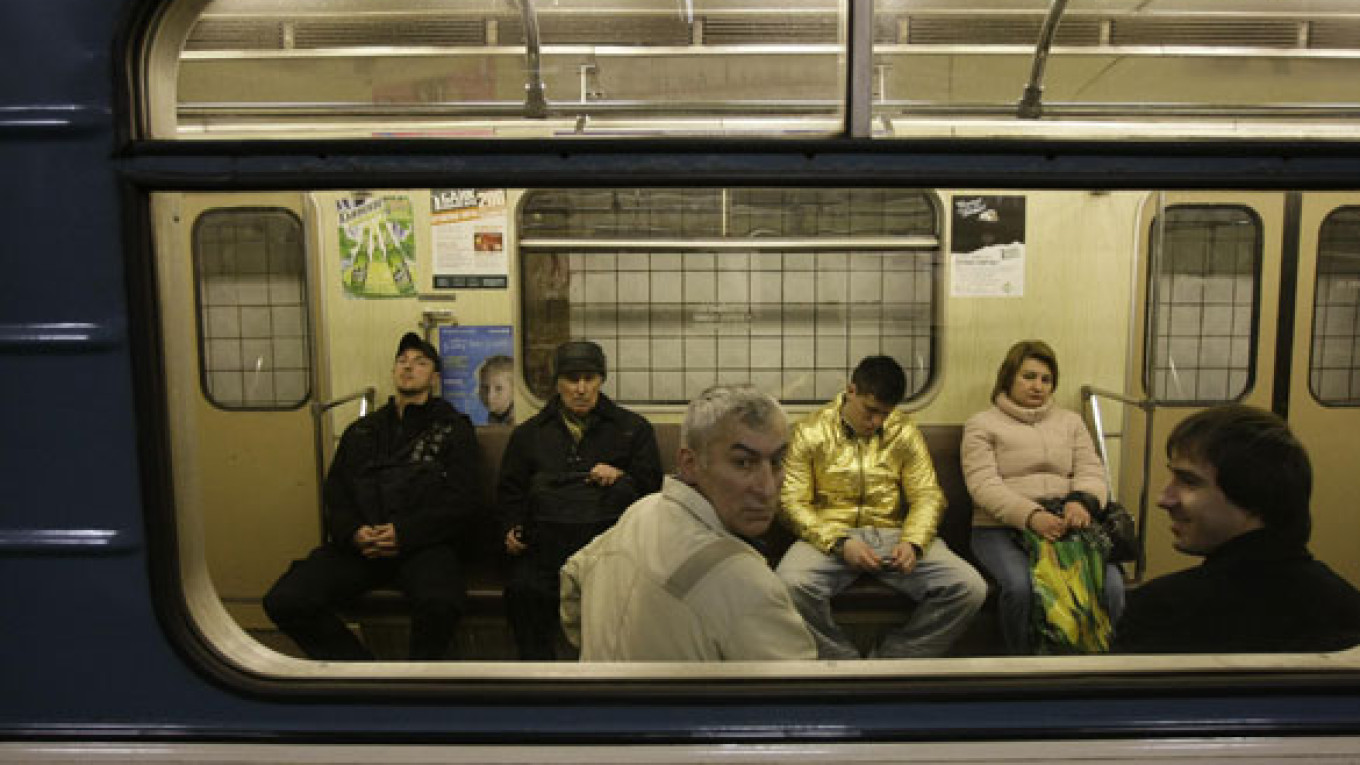Frightened and frustrated but ultimately stoic, thousands of Russian commuters poured out of their capital's metro on Monday after twin bombings caused carnage on the network's busiest line.
As they emerged from the height of the morning rush hour, Muscovites found traffic jams, taxi drivers doubling their prices and a mobile-phone system under severe strain.
Explosions triggered by female suicide bombers in trains at two central underground stations killed dozens in the worst attack on the Russian capital since February 2004.
"I'm scared. In Moscow we live like on a powder keg," Yevgenia Popova told Reuters television near the Lubyanka metro station, where the first blast hit shortly before 8 a.m.
Many Muscovites simply soldiered on, looking for alternate routes to work. Some pressed cell phones to their ears as they tried to get through to explain they would be late, to do business or to make sure loved ones were safe.
Next to Popova, a man in his thirties who was visiting Moscow frowned with frustration after trying in vain to reach his brother for half an hour.
"I'm not scared, but I feel like we're at war," he said. "My only feeling is to take vengeance. On whom? I don't know yet. But it cannot remain unpunished."
There was no immediate claim of responsibility, but security officials linked the attacks to the North Caucasus, where the Kremlin is fighting a growing Islamist insurgency a decade after driving separatists from power in Chechnya.
Popova had no theories about who was behind the blasts. "Maybe the rebels, maybe Chechnya. Someone is fighting someone. To be honest, I'm lost."
Ekho Moskvy radio said two women wearing Muslim-style headscarves were beaten by four or five passengers on a metro train after the bombings.
Russia is plagued by a strong undercurrent of bias against ethnic minorities from the Caucasus and Central Asia.
Russian media said security agencies were blocking mobile phone connections in the center of Moscow after reports that the bombs were detonated with the help of cell phones. But authorities later said the bombers had blown themselves up.
The second blast hit a metro train in the Park Kultury metro station some 40 minutes after the first explosion.
Both stations are on the Red Line, which runs close to the Kremlin and is one of the busiest in Moscow. Part of the line was closed and other lines were hit by delays, but the entire system was not shut down.
Announcements informed passengers of delays due to "technical reasons," avoiding anything more specific.
A number of bomb blasts in Moscow in the late 1990s and early 2000s put residents on guard, with travelers warily eyeing each stray shopping bag or briefcase. But some shed those habits as years passed without an attack.
"I've been walking to work through the entire [Moscow] center because I'm not going to ride the metro today," an unidentified woman told state television Rossiya 24.
RIA-Novosti reported that taxi drivers had inflated their rates wildly, charging about $100 per journey between some train stations — at least double the usual amount.
The leader of the Russian Orthodox Church, Patriarch Kirill, condemned the attack as well as the taxi drivers.
"This money will do you no good," he said in televised remarks. "Return it, spend it on a good cause. A desire to cash in on someone's distress will only bring you grief."
The owner of the video embedded below claims that it was taken during the mad rush to evacuate commuters from the Komsomolskaya metro station, which is on the same line as the two stations that were bombed Monday morning.
A Message from The Moscow Times:
Dear readers,
We are facing unprecedented challenges. Russia's Prosecutor General's Office has designated The Moscow Times as an "undesirable" organization, criminalizing our work and putting our staff at risk of prosecution. This follows our earlier unjust labeling as a "foreign agent."
These actions are direct attempts to silence independent journalism in Russia. The authorities claim our work "discredits the decisions of the Russian leadership." We see things differently: we strive to provide accurate, unbiased reporting on Russia.
We, the journalists of The Moscow Times, refuse to be silenced. But to continue our work, we need your help.
Your support, no matter how small, makes a world of difference. If you can, please support us monthly starting from just $2. It's quick to set up, and every contribution makes a significant impact.
By supporting The Moscow Times, you're defending open, independent journalism in the face of repression. Thank you for standing with us.
Remind me later.


